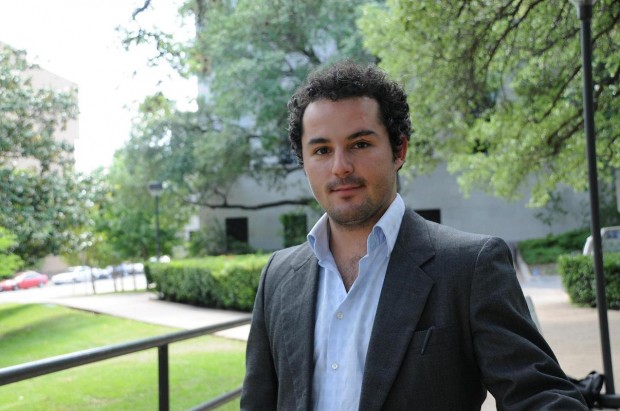Third-year Law School student Andrés Durá has been awarded a two-year Equal Justice Works fellowship. Durá’s fellowship, which is sponsored by the Texas Access to Justice Foundation, will be spent in San Antonio working for the Equal Justice Center providing legal services to low-income and immigrant construction workers who have not been paid for their labor.
The Equal Justice Center will create a new position, “construction worker counsel,” for Durá, in order to increase access to justice among low-income construction workers across Texas. He hopes to develop combined expertise in construction law and employment law bearing on wage recovery for low-income workers. Dura will collaborate with the private construction law bar as well as with private and public interest employment lawyers to help make sure low-income construction workers get properly paid the wages they have earned.
Durá said it is “shockingly common” that construction workers, especially those who are immigrants, are paid less than they are promised or not at all. Though this is illegal, Durá said many workers do not know it. “State and federal law does guarantee all workers the right to be paid for their labor, regardless of their poverty or immigration status,” Durá said. “The problem is that many low-income and immigrant construction workers have little knowledge about their wage rights or how they can safely protect those rights. And there are very few employment law advocates in Texas with the specialized knowledge, skills, and experience to help low-income construction workers enforce their wage rights.” He said that this has created a climate in which unscrupulous contractors have come to think they will not be punished if they don’t pay their workers.
Durá said the fellowship will allow him to continue doing public service work, a passion for which he discovered as an undergraduate at the University of Texas at El Paso and continued through his three years at the Law School. While at the Law School, Durá worked with the Transnational Worker’s Right Clinic, and as a legal intern with the Equal Justice Center. He also worked for Texas State Senator Eliot Shapleigh researching the effects of the Texas Driver Responsibility Program on low-income populations. But he said he first discovered his love for public-interest work when he was an undergraduate at the University of Texas at El Paso and became involved with on-campus campaigns to prevent the reopening of a nearby copper smelter and as a spokesperson for a student organization opposing changes to the university’s liberal arts curriculum.
“Everything crystallized when I got involved in those causes,” Durá said. “We started getting involved with and learning about the concerns of the local community, and we were able to connect policymakers with their constituencies. I remember talking to the provost about one of our causes, and he said, ‘I understand what you’re saying, but I need it in the form of a legal argument.’ That’s when I decided to go to law school.”
The Equal Justice Works (formerly NAPIL) Fellowships Program was launched in 1992 to address the shortage of attorneys working on behalf of traditionally under-served populations and causes in the United States and its territories. Recognizing that many obstacles prevent committed attorneys from practicing public interest law, including the dearth of entry-level jobs and daunting educational debts, the program provides financial and technical support to lawyers working on innovative and effective legal projects. The two-year Fellowships offer salary and generous loan repayment assistance; a national training and leadership development program; and other forms of support during the term of the Fellowship.
Related Links:

